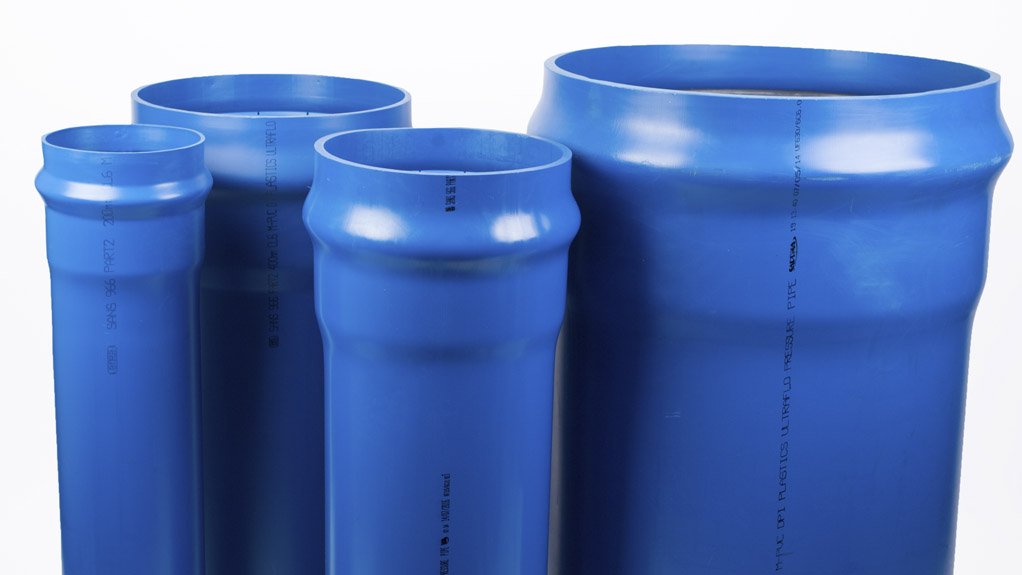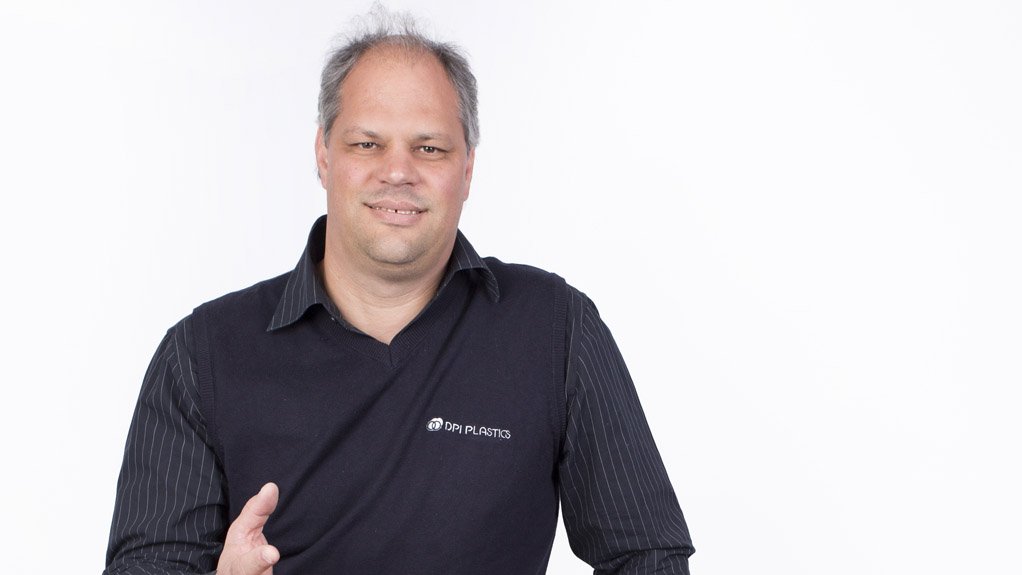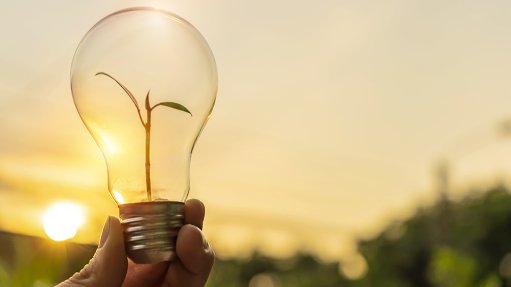Market needs education on plastic pipe advantages



PIPE THICKNESS The thickness of a pipe influences the overall quality of a pipe
RENIER SNYMAN There is a need for increased awareness of polypropylene pipes versus polyvinyl chloride pipes
The South African market is not well educated to look for, and know, the difference between high-quality plastic pipes and low-quality plastic pipes, says plastics producer DPI Plastics technical and product manager Renier Snyman.
He says that polyvinyl chloride (PVC) sewer fittings are all rated for 400 kPa and that both South African National Standards (SANS) 8773 and SANS 21138 standards from the South African Bureau of Standards (SABS) allow lower stiffness ratings for fittings.
“A lower stiffness rating makes for a thinner wall thickness and, therefore, a cheaper product. Lower-stiffness pipes and fittings are intended for use in shallow drains, whereas 400 kPa pipes and fittings can be used in all drains and deep sewers,” Snyman says.
He points out that 100 kPa and 200 kPa polypropylene pipe (PP) sewer fittings are sometimes installed in main sewer lines, an application they were not designed or intended for. This may lead to premature failure of sewer lines.
“PP is a new entrant with a minimal track record in the sewer and drainage market, compared with PVC, both locally and abroad. “There is a need for increased awareness of PP versus PVC yet PP fittings for sewer and drainage applications are slowly being introduced into the local market,” Snyman points out.
He notes that PVC, which constitutes 95% of the total sewer pipe market in the US, is only predominant in small to medium pipe sizes in South Africa. However, the myriad advantages of PVC over traditional materials such as concrete means it is ideal for stormwater drains and large sewers.
Snyman explains that PVC has a smooth surface, which translates into low friction or resistance. This gives an advantage for pressure pipes and gravity sewers. PVC is also classed as a semi-flexible material, meaning it has good resistance to ground movement. Traditional materials, such as clay and concrete, on the other hand, have high stiffness and are hard.
“The moment there is a little bit of movement, traditional pipe material can crack and spring a leak. This poses a major health risk with sewer-pipe systems in particular. “Another benefit is that PVC can be painted easily with either an exterior acrylic or alkyd enamel paint,” he says.
Snyman points out that, in South Africa, it is popular to paint soil and vent pipes. “We tend to plumb on the outside of a wall, and these external areas are highly visible as a result.”
He says that PVC has a high resistance to damage and scratches, which means that sewer lines made from PVC can be rodded or cleaned by means of water-jetting. The smooth internal bore is noncorrosive, and resists algae and scale build-up. This may not seem to be an issue affecting plastic pipes, but Snyman explains that a biofilm does form inevitably, which affects the flow and volume. However, this is negligible compared with other materials such as concrete.
“The end result is a pipe that still performs reasonably well, compared with a new pipe. That is quite important, especially as any pipeline is a long-term investment, with an average life span of 50 to 100 years. PVC also has double the tensile strength of high-density PP, meaning a thinner wall thickness. This not only reduces costs, but means that PVC has a lower carbon footprint as it uses less raw materials,” Snyman explains.
The company offers a full product range of PVC pipes up to 630 mm, and fittings are available for these sizes. However, he explains that only 110 mm PP sewer fittings are available in South Africa, “This means that a full system and size range of pipes and fittings are not available locally in PP material.”
He stresses that a major advantage of PVC for sewer pipes is that it has a high modulus of stiffness.
“A sewer pipe is empty for most of its life span, with only the ground pressure bearing down upon it. Trenching plays a role here, but the pipe has to have a certain stiffness in order to maintain its round shape. If a sewer pipe deforms excessively or collapses, it can result in blockages in the line. Hence, it is important that the pipe retains its circular shape, and here PVC plays a critical role,” Snyman explains.
He highlights that some of the extra benefits of PVC include that it is formulated specifically to be highly ultraviolet light-resistant, as well as having excellent fire properties. The high limiting oxygen index means it is difficult to ignite.
In addition, Snyman points out, with normal rubber ring joints, solvent welding can be used to join PVC pipes, which is easy to use and cost effective. The normal temperature range of a sewer and drainage system fluctuates from zero to 60 °C – “PVC performs well within that range”.
He explains that PVC also has a low coefficient of linear expansion, about half that of polyolefin.
PVC came under the spotlight at the Southern African Plastic Pipe Manufacturers’ Association Pipes X conference, held at the Byte Conference Centre in Midrand, in Johannesburg, on September 6, where Snyman gave a presentation on the potential of this material for large-diameter sewer pipes.
In November, DPI Plastics was awarded South African Technical Auditing Services (Satas) certification by the SANS, which means that select products from DPI Plastics will be sent for testing at an independent test laboratory by Satas.
“Satas certifies that manufacturers are in accordance with ISO 17065. The Satas mark will appear on our products shortly after the certification has been completed; it is highly respected as a mark of quality, and is well accepted and widely used by municipalities throughout South Africa,” he explains.
DPI Plastics will apply the Satas mark concurrently for a limited time with the SABS mark, after which it will eventually replace the SABS mark. He points out that this is because certification to the relevant SANS standard is issued by Satas, instead of SABS.
“It is important to note that our products are still manufactured and tested to the same SANS standard as before. The only change is that the certification will be issued by a different regulatory body,” Snyman highlights.
DPI Plastics has applied for a total of four different types of Satas marks for its Roodekop factory, in Johannesburg, and at present has been awarded three. He explains that the aim is to achieve a total of seven Satas marks at Roodekop, and elsewhere in the group, including its Bellville factory, in the Western Cape, and DPI Plastics’ sister companies pipes producers Sangiopipe, and Namibia Plastic Converters, in Nambia.
Snyman points out that DPI Plastics has a number of expired SANS certificates, which could not be renewed by SABS for some time. “SABS reported that it was experiencing problems, leading to inability to test and certify products. This placed us, as a responsible manufacturer of quality products, in a difficult position.
Satas is a viable alternative to SABS, as it is able to certify products to the same SANS standards as SABS. It is business as usual. Our quality and manufacturing operations remain unchanged, and we still aim to provide the best quality pipes and fittings to our clients,” Snyman concludes.
Article Enquiry
Email Article
Save Article
Feedback
To advertise email advertising@creamermedia.co.za or click here
Announcements
What's On
Subscribe to improve your user experience...
Option 1 (equivalent of R125 a month):
Receive a weekly copy of Creamer Media's Engineering News & Mining Weekly magazine
(print copy for those in South Africa and e-magazine for those outside of South Africa)
Receive daily email newsletters
Access to full search results
Access archive of magazine back copies
Access to Projects in Progress
Access to ONE Research Report of your choice in PDF format
Option 2 (equivalent of R375 a month):
All benefits from Option 1
PLUS
Access to Creamer Media's Research Channel Africa for ALL Research Reports, in PDF format, on various industrial and mining sectors
including Electricity; Water; Energy Transition; Hydrogen; Roads, Rail and Ports; Coal; Gold; Platinum; Battery Metals; etc.
Already a subscriber?
Forgotten your password?
Receive weekly copy of Creamer Media's Engineering News & Mining Weekly magazine (print copy for those in South Africa and e-magazine for those outside of South Africa)
➕
Recieve daily email newsletters
➕
Access to full search results
➕
Access archive of magazine back copies
➕
Access to Projects in Progress
➕
Access to ONE Research Report of your choice in PDF format
RESEARCH CHANNEL AFRICA
R4500 (equivalent of R375 a month)
SUBSCRIBEAll benefits from Option 1
➕
Access to Creamer Media's Research Channel Africa for ALL Research Reports on various industrial and mining sectors, in PDF format, including on:
Electricity
➕
Water
➕
Energy Transition
➕
Hydrogen
➕
Roads, Rail and Ports
➕
Coal
➕
Gold
➕
Platinum
➕
Battery Metals
➕
etc.
Receive all benefits from Option 1 or Option 2 delivered to numerous people at your company
➕
Multiple User names and Passwords for simultaneous log-ins
➕
Intranet integration access to all in your organisation




















